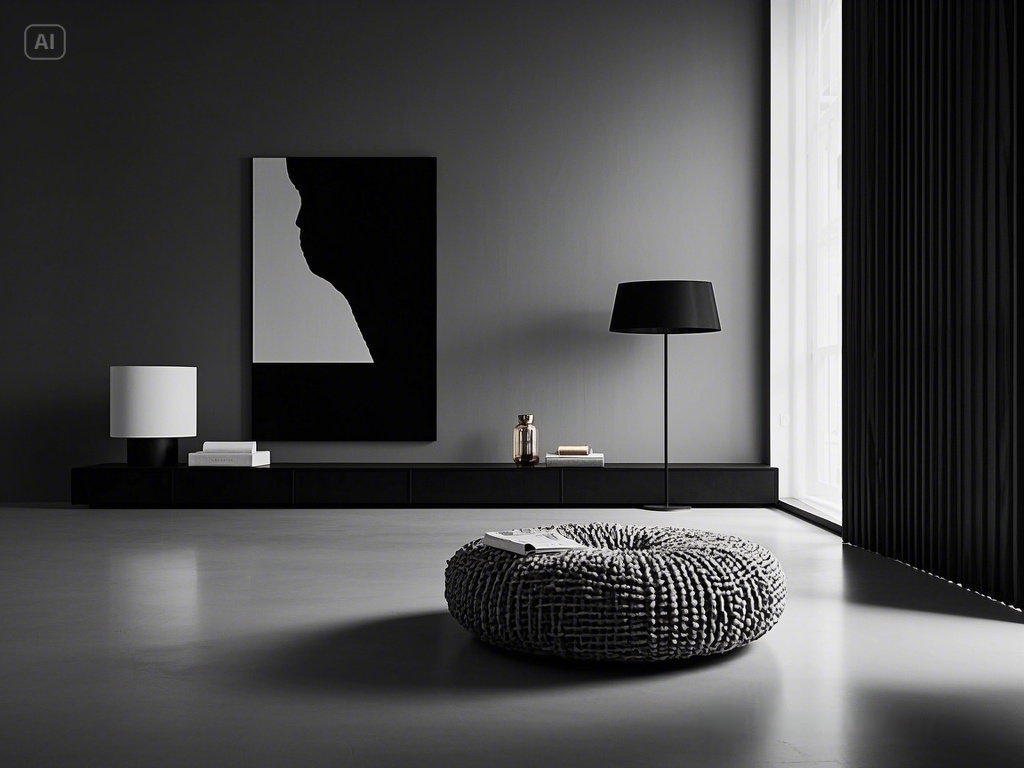
Why Monochromatic Home Decor is the Ultimate Design Power Move
The beauty of sticking to one color
Alright, let’s talk about monochromatic home decor. You’ve seen those sleek, sophisticated rooms on Pinterest, dripping in different shades of the same color, and thought, “Wow, how do they make that work?” Well, my friend, I’m here to spill all the design tea.
Monochromatic Home Decor design is more than just picking a color and sticking with it. It’s about depth, texture, contrast, and yes—showing off your impeccable taste without making your living room look like an art school project gone wrong.
But here’s the kicker: Done right, monochromatic home decor can make your home feel effortlessly elegant, cozy, and incredibly put-together. And I promise, it’s easier than it looks.
Think about it: When you see a well-designed monochrome space, your brain doesn’t have to work overtime processing a thousand different colors. Instead, it just takes it all in—calmly, serenely, with a sense of order and sophistication.
And no, monochromatic home decor doesn’t mean boring. It’s a chance to showcase your love for a particular color while playing with different shades, textures, and lighting to keep things interesting.
The key is balance. Too much of the same exact hue? You risk making the space feel flat. Too little? You lose the monochrome effect. But when you hit that sweet spot? Chef’s kiss.
Whether you’re going for a soothing, all-white sanctuary or a moody, deep-green retreat, a monochrome palette lets you control the vibe like an interior design maestro.
So, are you ready to embrace the magic of monochrome? Let’s dive into the nitty-gritty of how to make it work in your home.
Choosing the Right Color for Your Monochromatic Theme
Picking a hue that won’t drive you insane
First things first: You need to pick a color. But don’t just go grabbing your favorite shade and slathering it on every wall—let’s be strategic.
If you love neutrals, think soft grays, warm beiges, or classic whites. Want something bold? Deep blues, forest greens, or even a dramatic black (yes, black can be cozy) can create a stunning impact.
The trick? Pick a color you love, but also one that won’t make you question your life choices after a few weeks.
Here’s a little secret: Different colors evoke different moods. Blues are calming, greens are refreshing, yellows bring energy, and grays feel sophisticated. So, think about the feeling you want your space to give off before committing.
And don’t forget to consider natural light! A rich navy blue might look stunning in a well-lit room but could make a darker space feel like a cave. Test your chosen color in different lighting throughout the day before going all in.
How to Layer Shades and Textures Like a Pro
Mix it up for depth and dimension
Monochromatic doesn’t mean flat. The magic happens when you layer different shades, textures, and finishes. Think matte walls with glossy accents, plush fabrics with sleek furniture, or even mixing wood tones with painted surfaces.
Pro tip: If you’re using a light base, add deeper shades of the same color in accents like throw pillows, rugs, and artwork. The result? A space that feels rich and inviting rather than one-note.
Textures are your best friend here. Imagine a soft velvet couch in a monochrome blue room, paired with a wool throw and a glossy ceramic vase. These layers prevent the space from feeling too one-dimensional.
Lighting also plays a huge role. Warm lighting makes monochromatic decor feel cozy, while cooler lighting gives it a crisp, modern edge. Don’t be afraid to experiment with lamps, sconces, and candles.
The Do’s and Don’ts of Monochromatic Home Decor
Avoiding the pitfalls
| Do | Don’t |
|---|---|
| Mix different shades of your chosen color | Make everything the exact same shade—it’ll look flat |
| Incorporate various textures and materials | Use only one texture—it’ll feel one-dimensional |
| Use contrast in decor elements (light vs. dark) | Ignore lighting—it can make or break the look |
| Break it up with metallics or natural materials | Stick to just one finish—variety keeps it interesting |
Is Monochromatic Home Decor Right for You?
Pros and cons of embracing a single-color palette
Like everything in design, monochromatic decor has its pros and cons. Let’s break it down.